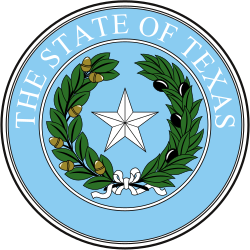| |||||||||||||||||
| Turnout | 35.2% [a] [1] | ||||||||||||||||
|---|---|---|---|---|---|---|---|---|---|---|---|---|---|---|---|---|---|
| |||||||||||||||||
 County results Perry: 40–50% 50–60% 60–70% 70–80% Sharp: 40–50% 50–60% 60–70% 70–80% 80–90% | |||||||||||||||||
| |||||||||||||||||
| Elections in Texas |
|---|
 |
The Texas lieutenant gubernatorial election was held on November 3, 1998, to elect the Lieutenant Governor of Texas. The Incumbent, Bob Bullock did not run for re-election due to his declining health and advancing age. [2] The Republican, Incumbent Agriculture Commissioner; Rick Perry was elected against incumbent Democratic Comptroller; John Sharp. Perry became the second Republican to be elected as lieutenant governor and the first to do so since 1869. The 1998 Texas elections saw massive gains for the Republican Party, who won all statewide offices for the first time. No Democrat has held the lieutenant governor office since the end of Bob Bullock's term in 1999.

